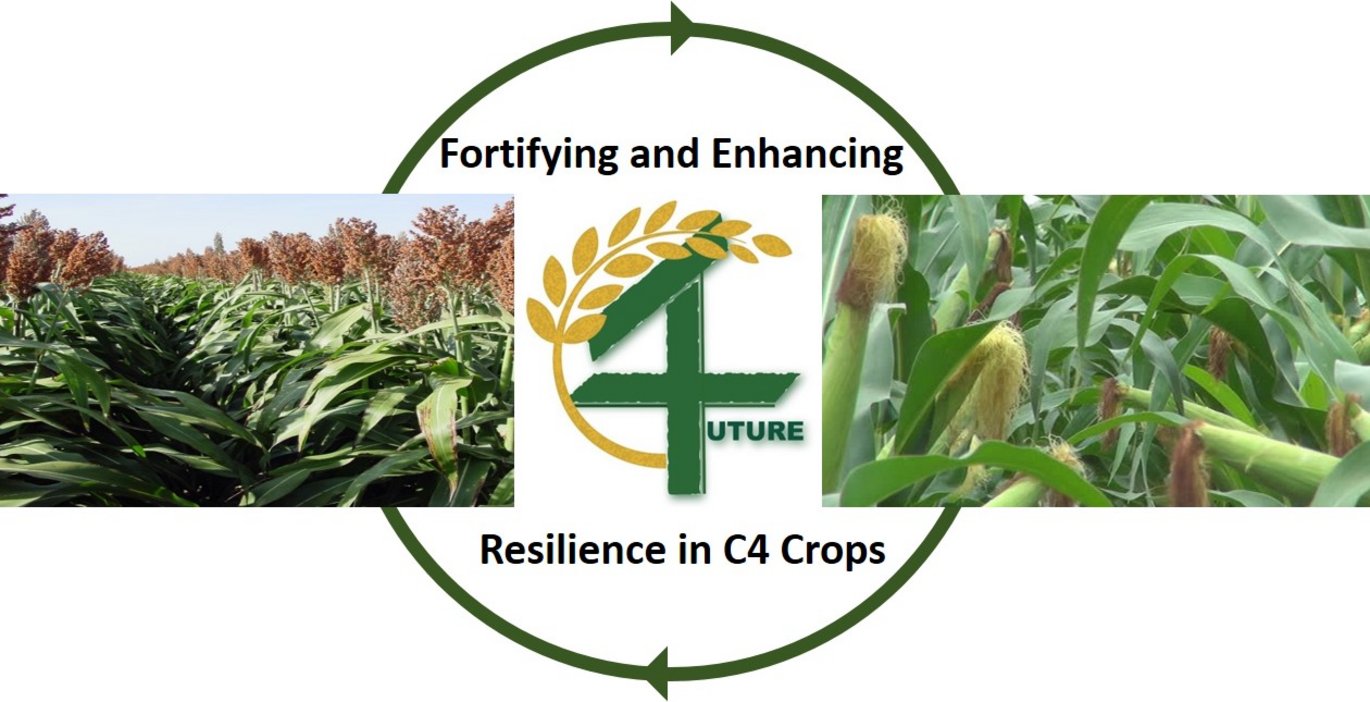EU Project C4Future Concludes, Yielding Vital Insights for Climate-Resilient Crops
As the European Union's C4Future project reaches its conclusion, it leaves a legacy of groundbreaking research aimed at tackling agricultural challenges posed by climate change. The project, which spanned three years and involved interdisciplinary teams from across Europe, has provided invaluable insights into developing climate-resilient crops – particularly maize and sorghum, two staple C4 crops renowned for their high efficiency in converting carbon dioxide into biomass—a characteristic that gives them an edge in resilience and productivity under warming conditions. Led by Professor Christian Hermans from Université libre de Bruxelles, with contributions by partners across Europe such as Professor Luc Janss in Denmark, the project has made strides in identifying crop varieties and genetic traits that could be pivotal for future food security.

Advancing Crop Resilience to Drought and Low Nutrient Conditions
A major focus of C4Future has been exploring how maize and sorghum varieties respond to water scarcity and nutrient limitations, two factors that are becoming increasingly common due to climate change.
“We have identified certain varieties that are more resilient to water and nitrogen stress,” says Christian Hermans.
These insights, gained through field trials across Europe and Turkey, are foundational for breeding programs that aim to develop crops able to withstand extreme weather and resource-limited environments. Maize trials in particular highlighted varieties with synchronized flowering times—a trait linked to stable yields even in drought-prone conditions.
Using a blend of field trials and controlled laboratory experiments, the project team in Denmark led by Luc Janss of Aarhus University, aimed to bridge the gap between lab-based findings and field realities.
“The goal was to counter the natural chaos of field trials by integrating data from controlled growth chambers. Our low-tech root screenings in the lab turned out to be
excellent predictors of field performance—a discovery that will streamline breeding programs for resilience,” explains Luc Janss.
By identifying genetic traits linked to resilience, the project has made significant strides in genomic prediction. These findings will help breeders select crop strains better suited to Europe’s challenging climate, improving the adaptability and efficiency of European agriculture, especially given Europe’s restrictions on genetically modified organisms.
Genetic Breakthroughs: Laying the Foundation for Climate-Smart Breeding
A core achievement of the project lies in its progress in understanding genomic regions associated with resilience to environmental stresses. The Danish team at Aarhus University’s Center for Quantitative Genetics and Genomics, specializing in genomic data analysis, contributed to identifying specific genetic markers that correlate with resilience traits.
“We now have a foundation for marker-assisted breeding, which means future crops can be pre-selected for beneficial genetic variations even before field trials,” says Elesandro Bornhofen, assistant professor at Aarhus University.
“This vastly improves breeding efficiency and allows us to meet the regulatory demands on nitrogen management, especially critical in countries like Denmark,” says his colleague, professor Luc Janss.
This genetic insight is essential not only for drought resistance but also for managing nitrogen use. Nitrogen, a crucial nutrient, often poses environmental risks when not efficiently absorbed by plants, as excess nitrogen can leach into waterways.
C4Future’s research addresses this by providing a deeper understanding of nitrogen absorption patterns in maize, which will help farmers meet ever stricter environmental standards while maintaining crop productivity.
These findings will be instrumental in the pre-breeding phase, as private companies and research centers can use this data to create crops better suited for Europe’s increasingly challenging climate.
Sorghum’s Potential: A Climate-Resilient Alternative for European Diets
Sorghum, though lesser-known in Europe, has emerged from C4Future as a promising climate-resilient crop. Requiring less water and fewer nutrients than traditional grains, sorghum is both gluten-free and rich in antioxidants.
Trials in southern Europe and Turkey demonstrated the crop’s ability to thrive in arid conditions, suggesting it could become a staple in European agriculture as droughts
become more frequent. Christian Hermans sees great hope for the grain’s future in European markets, emphasizing its potential to diversify diets and improve food security.
Beyond Research: Paving the Way for Sustainable Agriculture
Despite challenges in field trials—such as extreme drought in France in 2022 that led to crop failure—the project was able to extract meaningful data from both controlled and uncontrolled environments.
“Even with the difficulties, we managed to glean important insights that will make breeding faster and more effective in the future,” says Elesandro Bornhofen of Aarhus University.
The team’s collaborative efforts have created a platform for breeding more resilient crops faster, offering European farmers a tool to manage the risks posed by climate change.
The project also fostered strong international collaborations, a hallmark of EU research initiatives.
“One of the biggest advantages of EU projects like C4Future is the network we build with institutions all across Europe, like leading maize researchers in France that we now work with. Those connections give us access to data, resources, and expertise that we can apply to future projects, both EU and national,” says Luc Janss.
With its advances in genomics, C4Future is positioning Europe at the forefront of climate-resilient crop breeding. As project leader Christian Hermans put it:
“The findings from C4Future are not just scientific milestones; they’re steps toward a sustainable, resilient agricultural future for Europe, one that meets the challenges of climate change head-on.”